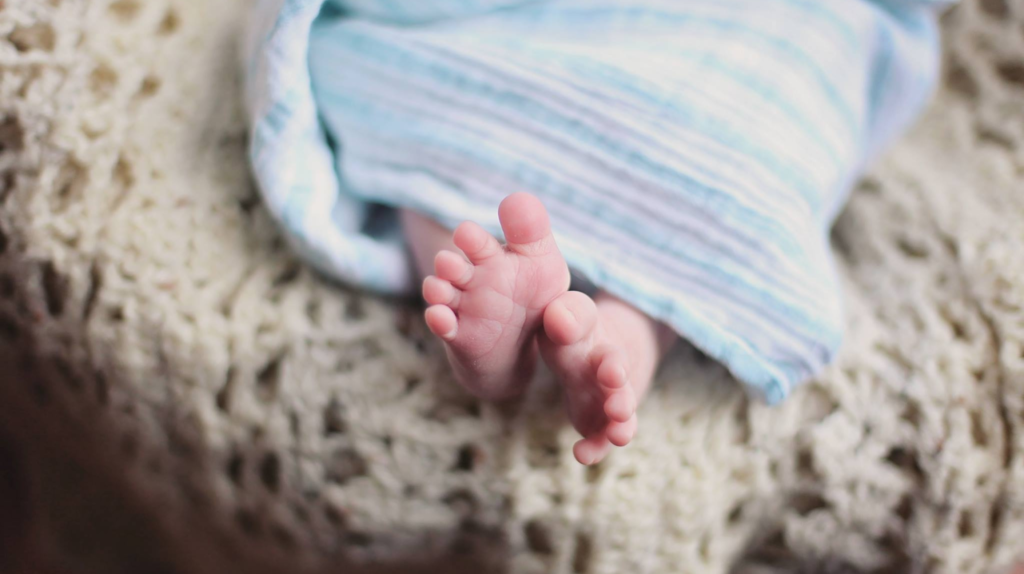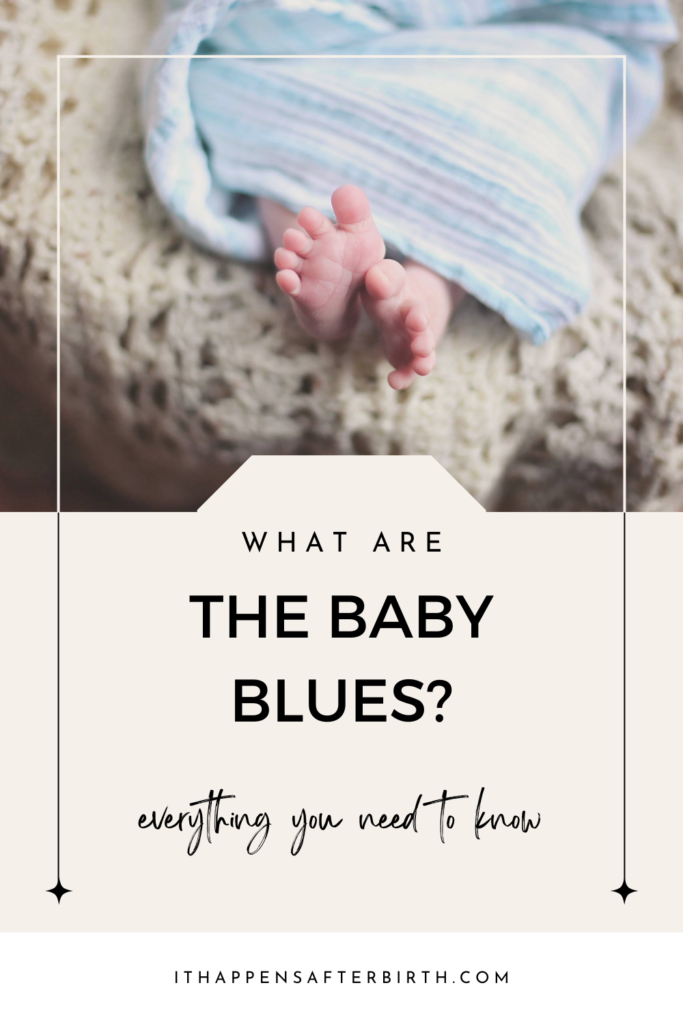Feeling sad after the birth of your baby? It might be the baby blues.

While a lot of us (especially first-time parents!) look forward to the birth of our baby, imagining that the time after birth will be filled with happiness, it can often include feelings of sadness too.
There actually is no “right” or “correct” way to feel after birth. Each person, each birth, and each baby is too different to have a concrete definition of normal. It’s impossible even to predict how you’ll feel after birth!
You might feel mostly happiness and little sadness. You might feel mostly sadness and little happiness. Or, you might feel a very even mixture of the two.
Regardless of where you’re currently at in your pregnancy or postpartum journey, odds are high that you’ve encountered the term “baby blues.” But what are the baby blues, actually? And what does it mean if you have them?
Baby blues is not a diagnosis
Let’s start with what baby blues is not.
It’s not an official medical condition. You can’t be diagnosed with it.
Baby blues is a broad term that refers to feelings of sadness. These feelings of sadness occur because of things that happen in our bodies after birth.
It’s not a condition, but rather an experience which many of us have after birth.
Is it like postpartum depression?
It’s not the same thing as postpartum depression. A mother can have baby blues and go on to have postpartum depression, or they can have postpartum depression that they at first mistake for baby blues. But they are completely separate things.
Postpartum depression is a mental health condition that occurs in the first year following childbirth. It is a condition that you can be diagnosed with, and it is treatable.
What are baby blues?
Baby blues are feelings of deep sadness shortly after the birth of your baby.
They typically start around day 3 postpartum, and they last for the first 2 or 3 weeks after birth.
The symptoms include:
- Weepiness
- Sadness
- Worry
- Feelings of anxiety
- Some difficulty doing everyday tasks
When you’re experiencing baby blues, typically your appetite and ability to sleep remain mostly normal. (As much as you can sleep with a newborn and physical recovery, that is!) While you might have feelings of anxiety, the anxiety won’t feel overwhelming. It won’t affect your ability to do things like take care of yourself or take care of your newborn.
It typically will not last any longer than 2 or 3 weeks.
Will all mothers get baby blues?
Not all mothers will experience baby blues, but a lot of them will. Statistics show that up to 80% of moms report feelings of unusual sadness after giving birth. This unusual sadness is what’s referred to as baby blues.
What causes baby blues?
Baby blues are mostly caused by hormonal fluctuations. It’s said that the hormonal fluctuation we experience after giving birth is one of the largest we as women will experience in our entire lives.
Simply put, it’s a big deal!
Estrogen and progesterone crash around day 3 postpartum. (Not a coincidence that the baby blues often show up on that same day!)
One of the functions of estrogen and progesterone in pregnancy is to stabilize your mood (and keep you happy). Getting used to these high levels of hormones over nine months, just to have them drop off very suddenly, is taxing on your body.
Aside from hormonal fluctuations, there is physical and emotional recovery after birth. Exhaustion from taking care of a newborn day and night can also play into the emotional state known as baby blues.
How long do the they last?
At most, baby blues will last 14-21 days. By around week three postpartum, your emotional mood starts to stabilize. You may also be falling into a rhythm and routine with your newborn, feeling more comfortable with this new dynamic.
How do I know if it’s baby blues or postpartum depression?
Sometimes if you admit to feeling sad after the birth of your baby, someone might ask if you think that you have postpartum depression.
On the surface (sad feelings, anxiety) baby blues and postpartum depression can seem very similar. And it’s possible that in the beginning, you may think it’s one when it’s actually the other.
But as time goes on, the symptoms start to differ.
Postpartum depression (PPD) can start at any time during the first year after childbirth. Baby blues takes place in the first month, most often starting on day 3 postpartum.
PPD can last months to years without feeling noticeably better. Baby blues will only last a couple weeks before you start to feel better.
Other symptoms of PPD are:
- -Unusual sleep patterns- either sleeping too much, or too little. (This refers to sleep you get without being awoken by a newborn.)
- Lack of appetite, or suddenly wanting to eat all the time
- Feelings of numbness
- Lack of motivation to do even basic tasks (unrelated to exhaustion from caring for a newborn, or being physically unable while recovering).
- Suicidal thoughts or thoughts of harming yourself in some way
- Not feeling better as time goes on or as you recover- you feel just as bad or worse.
If you think you may have PPD, contact someone who can help you. Postpartum Support International is a good resource to start with, as well as a trusted doctor or care provider. Postpartum depression is a medical condition that is treatable.
You don’t have to keep quiet or tough it out
While you can take comfort in knowing that you’re not alone, and your experience is common, it doesn’t mean you’re not allowed to share how you’re feeling.
The baby blues are short-lived, but they can feel difficult while you’re going through them. Feeling sad, worried, or unsettled for any reason can be a struggle while trying to care for yourself and a newborn!
Feel free to share what you’re going through with your partner, trusted friend, or someone you know you can vent to. They can provide a safe, listening ear and support you until you reach the other side.

